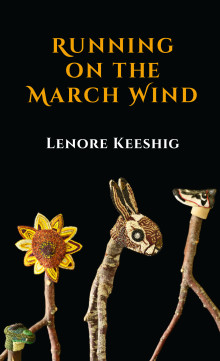Running on the March Wind
This is the long-awaited debut collection by a widely-anthologized master poet. While it is intended foremost for an Aboriginal audience, the poetry’s scope and quality create an extraordinary opportunity for all readers to see through Aboriginal eyes. There are exquisite lyrical portrayals of the Saugeen region and other parts of Southern Ontario; biting commentary on the historic injustices to First Nations people; engaging magical realism and native mythology, featuring wily tricksters and giving form to dreams; touching treatments of the bonds between Elders and children; visions of suffering and violence laced with consoling beauty; celebration of the solace of trees and water and even the company of bears; lamentation, elegy, indignation, and affection and deep love for a region and those living there.
About The Author
Reviews of this Book
“This is the poet who brought the issue of appropriation of voice out of the closet and told Canada to make room for Indigenous writers. This is poetry without artifice or obfuscation, poetry that reveals the evocative truth of being Anishinaabe in the 21st century living in a colonized land. Read these poems and celebrate Keeshig’s vision of survival and beyond.”
– Armand Garnet Ruffo, author of The Thunderbird Poems
“Years ago, Lenore Keeshig threw a scare into the Canadian cultural establishment, defiantly calling upon it to “stop stealing Native stories.” In the uproar that followed, publishers began to open doors to Canadian Indigenous writers. Since that time, her toughness of spirit has not diminished, but there is more to Lenore. She is a magical storyteller, writing in a gentle voice about mothers, daughters, grandparents, trees, water, clouds, bears and Nanabush. To her, Neyaashiinigmiing is ‘the most beautiful place in the world’, and she has captured this in her poems.”
– Rob Rolfe, author of Beyond Mudtown, Saugeen, and The Hawk
“Anishnaabe storyteller Lenore Keeshig’s lyric voice does contend with stereotype, Canadian law and the lies of history books, but it’s always with the end of getting a hearing for our lived truths. Her poems prove that children and family, that bears and trees, waterspouts and guiding spirits make a world more worth our lifetimes than the one Cowboys and Indians used to define.”
– Daniel David Moses, author of ‘A Small Essay on the Largeness of Light’
and Other Poems and Almighty Voice and His Wife









